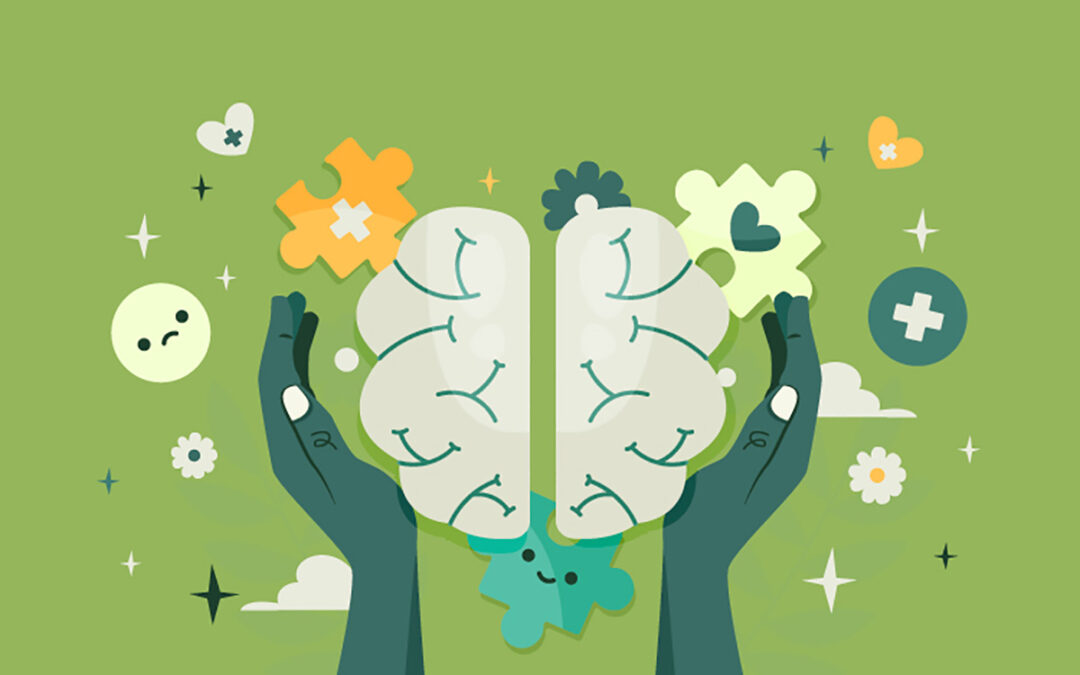Photo Credit: Freepik.com
Mental health has come to the forefront of public discourse in recent years, leading to innovative approaches and trends in the field. In this blog, we will explore three key trends in mental health and support them with relevant research references.
Teletherapy and Digital Mental Health Platforms:
With the advent of teletherapy and digital mental health platforms, mental health care has become more accessible than ever before. Research by Hubley et al. (2016) found that teletherapy can be just as effective as in-person therapy, opening up new possibilities for remote and on-demand mental health services. Apps and platforms like ImPerfect offer therapy and support through text, video, and voice calls, making mental health care convenient and flexible.
Benefits: Teletherapy offers flexibility in scheduling sessions, removes the need for travel, and increases anonymity, which can be particularly appealing for those who feel uncomfortable with face-to-face interactions. Additionally, some digital mental health platforms offer 24/7 access to therapists, providing immediate support in crisis situations.
Challenges: While teletherapy has many advantages, it also presents challenges such as the potential for technical difficulties, concerns about data privacy, and limitations in non-verbal communication compared to in-person sessions.
Real-Life Example: Consider Sarah, a young professional who lives in a rural area with limited access to mental health services. She experiences anxiety and depression but finds it challenging to commute to a therapist’s office due to her work schedule and distance. Sarah discovers certain apps or therapists, who offer online therapy. Through video sessions and messaging, she connects with a licensed therapist who provides support and guidance, allowing her to manage her mental health effectively
Personalized Mental Health Care:
Personalization is a growing trend in mental health care. Research by Mohr et al. (2017) highlights the effectiveness of tailoring mental health interventions to individual needs and preferences. Advancements in technology and data analytics enable mental health professionals to create personalized treatment plans. For example, machine learning algorithms can predict potential mental health issues based on a person’s online behavior, helping in early intervention and prevention.
How it works: Personalized mental health care begins with a thorough assessment of an individual’s mental health, including their symptoms, history, and lifestyle factors. Machine learning algorithms can then analyze this data to predict potential issues, recommend suitable interventions, and track progress over time.
Benefits: Personalization increases the likelihood of treatment success by addressing specific challenges and preferences. It also allows for more efficient use of resources, as interventions are targeted where they are most needed.
Real-Life Example: John has been struggling with bipolar disorder for years. Traditional treatments have had limited success in stabilizing his moods. His mental health care team decides to implement personalized treatment using data from his mood tracking app, genetic testing, and therapy sessions. By analyzing this data, they identify specific triggers and patterns in John’s condition. With this tailored approach, they develop a treatment plan that includes medication adjustments, therapy techniques, and lifestyle changes. John experiences significant improvements in his mood stability and quality of life.
Integrative Approaches to Mental Health:
Integrative approaches to mental health, which combine traditional therapies with complementary and alternative practices, are gaining popularity. Research by Lake and Spiegel (2017) discusses the benefits of integrative mental health care, which may include yoga, mindfulness meditation, acupuncture, and nutrition counseling. These approaches recognize the interconnectedness of mental, emotional, and physical well-being, offering holistic solutions to mental health challenges.
Examples: Integrative approaches may include incorporating practices like yoga, mindfulness meditation, acupuncture, nutrition counseling, and herbal remedies into traditional mental health treatments. These practices aim to promote overall wellness and complement other therapeutic interventions.
Benefits: Integrative approaches acknowledge that mental health is influenced by various factors, including lifestyle, diet, and physical health. By addressing these factors holistically, individuals can experience improved mental well-being, reduced stress, and enhanced resilience.
Challenges: Integrative approaches may not be suitable for everyone, and it’s essential to ensure that alternative therapies are evidence-based and administered by qualified practitioners.
Real-Life Example: Maria is dealing with chronic stress and anxiety due to a demanding job and personal challenges. She seeks a holistic approach to managing her mental health. Maria begins practicing mindfulness meditation daily and starts attending weekly yoga sessions. Additionally, she consults a nutritionist who recommends dietary changes to support her mental well-being. Over time, Maria notices a reduction in her anxiety levels, improved sleep, and increased resilience in coping with stress. The combination of these integrative practices complements her traditional therapy sessions and contributes to her overall mental health improvement.
In conclusion, mental health care is undergoing a transformative shift with the emergence of teletherapy and digital platforms, personalized treatment approaches, and integrative strategies. These trends aim to make mental health care more accessible, effective, and tailored to individual needs. While these trends hold promise, it’s essential to continue research and evaluation to ensure their long-term effectiveness and safety.
– Urveez Kakalia.
References:
Hubley, S., Lynch, S. B., Schneck, C., & Thomas, M. (2016). Review of key telepsychiatry outcomes. World Journal of Psychiatry, 6(2), 269-282.
Mohr, D. C., Zhang, M., & Schueller, S. M. (2017). Personal sensing: understanding mental health using ubiquitous sensors and machine learning. Annual Review of Clinical Psychology, 13, 23-47.
Lake, J., & Spiegel, D. (2017). Complementary and alternative treatments in mental health care. In Integrative Mental Health Care (pp. 1-22). Springer.

